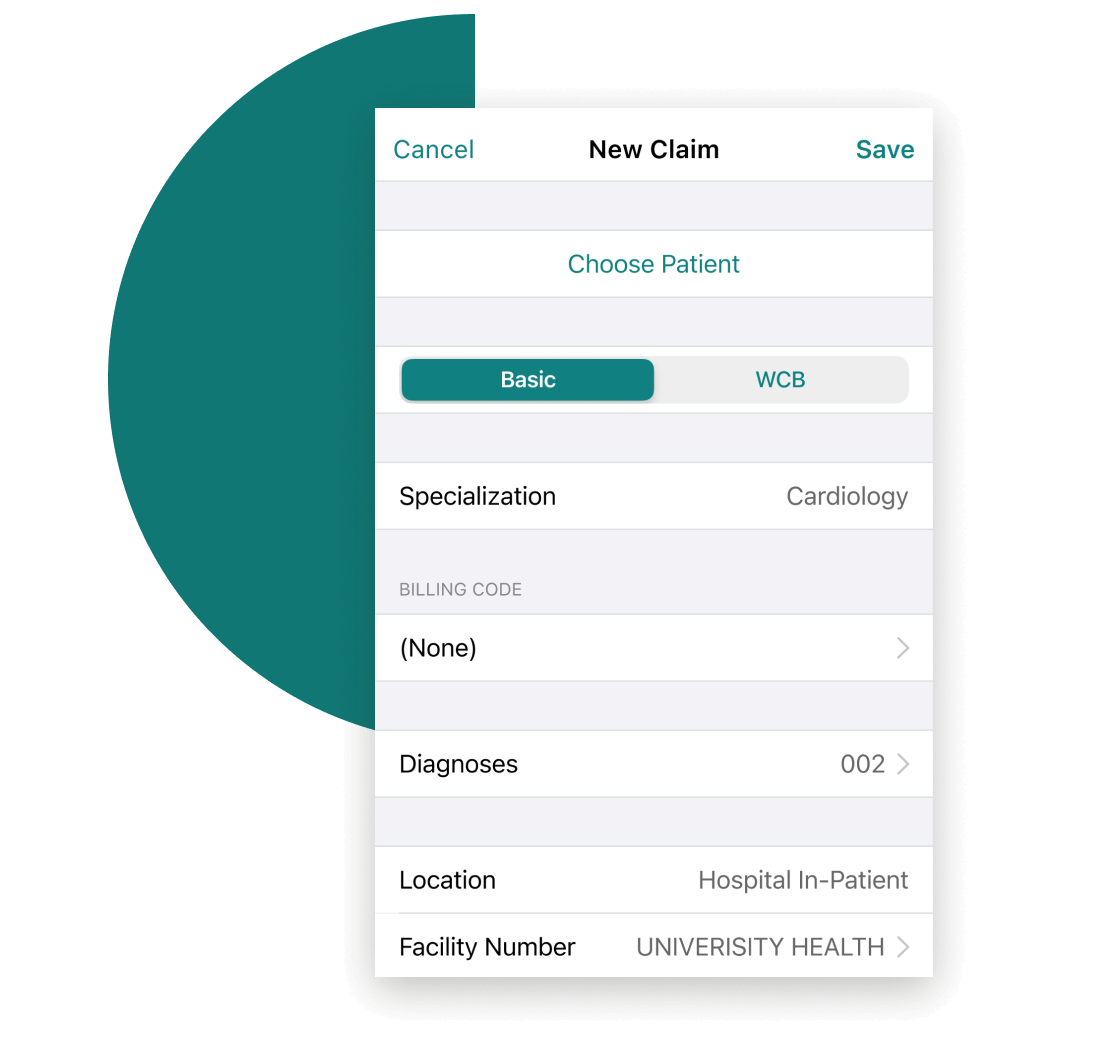What’s the point of writing a good cover letter when applying for a job?
There are many reasons backing the need to have a good cover letter to go along with your targeted resume. For one, a job cover letter is a great way to tell the hiring manager why they should consider your application.
A cover letter exemplifies your fitness for the position, your competence, your professionalism, and, based on how it’s written, it also reveals a little bit of your personality. It gives you an opportunity to give the hiring manager some context for what’s in your resume and highlight the specific parts that make you stand out and make the perfect candidate for the position.
Most candidates wonder how to write a cover letter for doctor job. Once you nail the basics down, it’s relatively easy to modify your cover letter for specific job roles to ensure that you make your application as relevant as possible to the job that you’re applying for.
How To Write A Good Cover Letter
When writing a cover letter, there are two key aspects to keep in mind: the length and how broad or specific it should be.
Similar to resumes, cover letters should not exceed one page in length. The hiring manager should consider reading your letter and not get ticked off just looking at the length of it. In terms of word count, a good cover letter should ideally be under 500 words. As a rule of thumb, try to not go beyond three paragraphs (four at max).
When it comes to how broad or specific your cover letter should be, the more relevant it is to the position you’re applying for, the better it’ll work. This is because the person who’s making the decision on who to hire has a clear idea what they’re looking for in a candidate. Taking clues for the job description and adding those in your cover letter could help you make an impression.
Many organizations use softwares to scan thousands of applications for specific keywords or phrases that are aligned with their job description. Not including these in your cover letter could potentially exclude you from being in the considered set. If you’ve ever wondered how to write a broad cover letter, then this is a vital reason why you shouldn’t do that and focus more on keeping it relevant to the role.
If you’ve been on the job market for a while, this process can be gruelling. However, forcing yourself to tailor your documents to the specific position will help ensure you only apply to desirable jobs and when you do, you give it your all and enhance your chance of getting shortlisted.
What To Include In A Cover Letter
“What do I need to include in a cover letter?” – this is a popular question among most job applicants. Let’s explore what to include in a cover letter to ensure you make the best possible impact on the hiring manager.
1. Pick The Right Template
First impressions are everything. A good theme that looks professional, has subtle soothing colors and a good font can go a long way in leaving a good impression. There are many free templates available to download and use. For example Microsoft office has a variety of freebies that include themes which will connect your cover letter and resume together (like colors, fonts, etc). You could even consider using the colours of the healthcare organization where you’re applying on your template. Knowing how to write a good cover letter is a skill that once learned can help you land your dream job.
2. Start The Cover Letter With A Clear Header
Similar to a resume, start your cover letter with a contact information section. Here’s what you could include in this section:
- Full name
- Phone number
- Email address
- Date
- Name of the hiring manager / person the letter is addressed to
- Name of the organization that you’re applying to
Depending on where you’re applying to and how strong your personal brand is, you could consider adding the following:
- Personal website: If you have a personal website that highlights your achievements, skills, education, and anything that could add value to your application, then do add the link to the website.
- Social media profiles: Here, you could consider adding your LinkedIn profile and links to any other platform where you’re active. For example, if you’re an oncologist who engages with users on Quora, then you include that.
Here’s what you should not include in this section:
- Unprofessional email address: An ideal email address should be [first name] + [last name] @ email.com. Avoid sharing email addresses that look like sammith2206@email.com. They look unpresentable and don’t leave a positive impression on the person reading it.
- City of residence: This is something you should mention in your resume.
3. Start With A Professional Greeting
The real work starts after listing down your contact information. The first thing to do here to address your cover letter to the hiring manager. Avoid being vague here by writing “Dear Sir or Madam”. This is your first opportunity to make an impression and prove that you’ve done your homework and are truly passionate about the position.
Never make the grave mistake of writing one letter and spamming 10 or more companies in the hope that someone will take notice of your application and offer up an interview.
The challenge here is how do you find the name of the hiring manager if it’s not already mentioned? There are a few ways you could do this.
The easier way is to go on LinkedIn and look up the head of the relevant department. Let’s say you’re applying for the role of head cardiologist at XYZ hospital. The hiring manager is probably the head of the hospital or someone in the HR department.
Another effective tactic is to check the hospital’s website and look for the “team” page. There’s a high chance you’ll find the name of the person there. And if all this fails, then you could consider going with the following greeting options:
- To whom it may concern
- Hello hiring manager
- Hello [department] manager
- Hello [department] team
4. Begin With A Strong Introduction
Hiring managers receive hundreds, sometimes thousands of applications for a job position. Rarely do they go through every single resume and cover letter in detail. This is why your introduction paragraph must be great so that it captures their attention.
An example of a poor cover letter introduction paragraph would be:
Hello Hiring Manager,
My name is Jamie and I’m writing to apply for the head of cardiologist position at XYZ hospital. I’ve worked as a resident cardiologist at ABC practice and have 4 years of experience and I believe I would be a good fit for this position.
Here’s what’s wrong with this introduction:
- It doesn’t highlight anything specific other than the fact that you’ve worked this job before.
- It doesn’t highlight what you can bring to the table or why someone should continue reading.
- It says nothing to make you stand out from other applicants.
A good approach here would be to start with a few sentences that really grab the reader’s attention and highlight your achievements that are most relevant to the job that you’re applying for. Here’s an example:
Hello Samantha,
My name is Jamie and I’d like to help increase the efficiency of the Cardiology department at XYZ Hospital as its head. I’ve worked with ABC practice for over 4 years and have led some of the most complicated surgeries such as heart valve repair and heart transplant. I believe my industry experience along with my certification makes me the perfect candidate for the job.
See the difference between the two examples? Knowing what to include in a cover letter can either lead you to an interview or get you ignored.
5. Explain What Makes You The Perfect Candidate For The Job
This is that part of the cover letter where you show off your professional skills and academic accolades to impress the hiring manager and convince them that you’re the perfect fit for the job.
To write this bit, you need to first know what the most crucial requirement of the position is. Check the job description and identify which of the responsibilities are most critical.
For example, assume you’re applying for a position in Emergency Medicine. You check the job description and see that the top requirements are:
- Fellow of the Royal College of Surgeons of Canada (FRCSC)
- Doctorate in Medicine
- Certificate of College of Family Physicians of Canada-Emerg Med (CCFP-EM)
- Advanced Cardiac Life Support Certification (ACLS)
- Advanced Trauma Life Support Certification (ATLS)
- Emergency experience
- CCFP-EM or FRCPC both welcome to apply;
- Canadian Medical Protective Association (CMPA)mandatory
- Full License with CPSBC
Your paragraph must address these specifications to ensure your cover letter is relevant to the position.
6. Explain Why You’re The Best Fit For The Organization
The hiring manager isn’t just looking for someone who can do the job. They’re also looking for someone who can adapt to the organization’s culture. Often, employees who don’t fit tend to quit which ends up costing the organization a ton of money.
An effective way to go about this is do some research about the place–what’s the culture like, do they micromanage or will you have autonomy on how you get things done? A simple Google search will give you the information you need–either on the company website or some other resource.
7. End the cover letter with a call to action
In the concluding paragraph, focus on three things:
- Any points you couldn’t mention in the previous paragraphs – any information that could help the hiring manager make the decision.
- Thank the hiring manager for their time.
- Add a call to action – for example, you could call me at 123-456-789 or write to me at jamiecollins@email.com
Sample Cover Letter
Jamie Collins
123-456-789
jamiecollins@email.com
23rd September 2020
To: Ms. Samantha Jones
XYZ Hospital
Hello Samantha,
My name is Jamie Collins and I’d like to help increase the efficiency of the Cardiology department at XYZ Hospital as its Cardiology Head. I’ve worked with ABC practice for over 4 years and have led some of the most complicated surgeries such as heart valve repair and heart transplant.
I see the position as a wonderful opportunity to advance my career in the cardiology department of a highly recognized healthcare institution. My sibling was born with a heart defect and that has encouraged me to devote my life to treat and care for patients who need help in the cardiology department.
From cardiovascular disease to heart failure to interventional cardiology I believe working with XYZ Hospital will give me ample opportunities to care for patients, improve the efficiency of the department and add value to the organization.
I would be more than happy to come in for an interview and discuss my plans for XYZ Hospital’s Cardiology department. You can call me at 123-456-789 or write to me at jamiecollins@email.com.
Best regards,
Dr. Jamie Collins
Conclusion
There are as many ways to write a good cover letter as there are jobs to apply for. However, your objective should be to get the hiring manager interested and maintain a professional and respectful tone. Knowing how to write a cover letter for doctor job can give you a chance to get your foot in the door.
Are you on the lookout for your next big gig? A great job not only helps you excel in your career but it also gives you the fulfillment of doing something meaningful. Check out our guide on how to land the job of your dreams!
This article offers general information only and is not intended as legal, financial or other professional advice. A professional advisor should be consulted regarding your specific situation. While information presented is believed to be factual and current, its accuracy is not guaranteed and it should not be regarded as a complete analysis of the subjects discussed. All expressions of opinion reflect the judgment of the author(s) as of the date of publication and are subject to change. No endorsement of any third parties or their advice, opinions, information, products or services is expressly given or implied by RBC Ventures Inc. or its affiliates.

Solutions Designed For The Unique Needs Of Your Practice
Get a $150 Credit when you sign up for Dr.Bill*. No credit card required.






